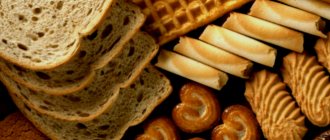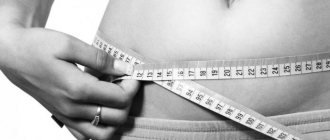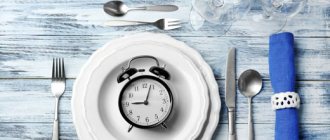What happens in the body during night sleep?
Why do we weigh less in the morning than in the evening? At night, nature falls asleep, and we, too, sleep as part of this nature. It is in a dream that we restore the energy wasted during the day; our body, like a complex computer, reboots.
During night sleep, regeneration processes occur faster, and in parallel with this, cells are intensively cleansed of toxins and waste. Old damaged cells are restored and new ones are formed.
Why is my weight less in the morning than in the evening?
The processes listed above require a lot of energy. In addition, the heart continues to beat, the lungs do not stop breathing, and the brain continues to work. All this requires crazy energy costs. And willy-nilly, the body has to extract calories from its fat reserves, which it so carefully put aside “for a rainy day.” True, fat is extremely energy-intensive, so it decreases very little overnight. But scales, especially electronic ones, are still able to catch this.
You say: “Sometimes I weigh less in the morning than in the evening, almost one and a half kilograms, is it really that much fat that was consumed in 8-9 hours of sleep?” Unfortunately no! The majority of weight lost overnight is water.

General recommendations
If you decide to lose weight, remember the important and not always obvious points for losing weight:
- Don't forget to get enough sleep. Chronic lack of sleep and poor quality sleep, which has already been proven by research, can lead to uncontrolled food consumption and extra pounds. But if, on the contrary, you get enough sleep, you can lose weight much faster.
- Drink clean water, gradually approaching the norm - 6-8 glasses a day.
- Don’t take losing weight catastrophically seriously - this is a direct path to failure. You can allocate 15 percent of your daily caloric intake to your favorite harmful foods.
- Monitor your calories during the first few months of the challenge. In the future, you can switch to intuitive eating if it suits you.
To create a suitable weight loss method, seek help from a nutritionist.

How water evaporates from the body during sleep
Almost all of us weigh less in the morning than in the evening. Why? It turns out that this is largely due to two processes that constantly occur in our body:
- Breathing process. With each exhalation, a small amount of moisture is removed from the body. This can be noticed in the cold season: in the frost outside, all people have steam coming out of their mouths. When we are warm, this process simply ceases to be noticeable.
- The process of sweating. We constantly lose water, which comes out through the pores along with sweat. When sleeping under a warm blanket, this process is very intense.

Steps
Checking bathroom scales
- Set the scale to zero.
Sometimes the zero gets lost and needs to be reset. There are two ways to do this, depending on what kind of scale you have. If you have an analog scale, press it with your palm and then remove your hand. As a result, the scale should return to zero. If this does not happen, use the wheel, which is usually located at the bottom of the scale or right next to the scale - twist it so that when there is no load, the scale shows zero. Check the scale again to make sure the zero is set correctly.
Weigh an object of known mass.
One way to check the accuracy of a bathroom scale is to use it to weigh something whose weight you know. The item should be large enough for the scale to sense it, but not too heavy so that you can place it on the scale without much effort. For example, you can use an unopened packet of sugar or flour with the weight indicated on it. As a rule, such packs weigh no more than a few kilograms, which is convenient for checking scales.
Weigh the item several times.
Scale readings may vary when weighed multiple times. Take an object with a known weight, such as a weight or an unopened packet of sugar. Place it on the scale and record its readings. Then remove the item from the scale and wait until it reaches zero. After that, put it back on the scales and record their readings. Perform at least five weighings to ensure repeatability of scale readings.
Weigh two objects at the same time.
Another way to check the scale's accuracy is to weigh two items together.
This way you can put more weight on the scale and
evaluate its accuracy at larger
values
. In addition, you will test how the scale works when the mass is not uniformly distributed, which is useful when weighing, since you do not always stand exactly in the middle on it.
Weigh yourself by holding an object of known weight in your hands.
You can weigh yourself empty-handed, remember the weight, step off the scale, and then weigh yourself again holding an object whose weight you know—for example, a two-pound dumbbell or a one-pound bag of flour. Check to see if the scale reading changes to exactly the weight of that item. If yes, then your scale is accurate.
- For example, if you weigh yourself empty-handed and the scale shows 65 kilograms, then when weighed with a dumbbell weighing 2 kilograms, it should show 67 kilograms.
- Change the location of the scales.
The performance of the scale can be affected by the surface it is placed on. It is best to place the scale on a hard, level surface, such as a tile floor in a bathroom or kitchen. On carpet and other soft surfaces, bathroom scales may sag, which can reduce their accuracy. First, test the scale where you intend to use it. Then unload them and move them to another, more stable surface. Repeat the weighing procedure. In this case, the scales must show the same value, otherwise their previous location negatively affects the accuracy of the measurements. Use an object with a known weight to test so that you know where the scale gives a more accurate result.
Checking kitchen scales
- It is essential that your kitchen scale produces accurate results.
Compared to floor scales, kitchen scales are designed to handle significantly lighter weights. However, when trying to lose weight, kitchen scales also play an important role. Various diets involve weighing food, which allows you to keep track of calories consumed. Since kitchen scales are designed to weigh small amounts, checking them can be a challenge.
Check the calibration of the scale.
To ensure that your digital kitchen scale is set to zero correctly, you should check its calibration. This way you will know if your scale is measuring weight from zero. Turn on the scale. In this case, zero should be displayed. If a different value appears on the scale, lightly press the scale pan. After this, release the bowl and check the scale readings. If it is still not zero, click the “Tare” or “Zero” button. This will reset the current value on the unloaded scale to zero.
What a pity that we gain much knowledge only through experience. This is especially true for losing weight. We follow the same weight loss paths, get the same bumps, make the same mistakes.
When something is very important to us, it is so difficult to distract ourselves from it for even a second. We devote almost all our thoughts to one goal. In the morning, afternoon, evening, there is only one thing in my head: “I wish I could lose weight quickly!” And we impatiently weigh ourselves almost hourly, hoping to see serious results. But the experience that we often lack tells us the opposite: you can only weigh yourself once a week, or better yet, twice a week!
Experienced losers have learned this truth through trial and error. Let's explain the reasons and find out why you shouldn't weigh yourself every day
.
Physiological reasons
Even with serious efforts in losing weight, the scale can show not only a loss of weight, but even an increase in it. This is due to our physiology.
The female body is designed in such a way that on certain days of the month you will see weight gain. Weight gain is associated with fluid retention in the body before critical days. Depending on the individual characteristics of the body, this condition can last from 2 days to a week.
Fluid in the body can be retained for other reasons - food. For example, you couldn’t resist eating something spicy or salty. Not only will this cause you to drink a lot of water, but it, bound by sodium, will not be able to leave the body. Fried foods are also at risk of causing swelling. It would seem that you ate nothing at all, few calories - but your weight increased!
If you play sports, then keep in mind: during exercise, fats melt, but muscles grow and gradually become heavier. It turns out to be a kind of replacement in terms of weight. Therefore, there may not be plumb lines. Or the results will be less than expected.
Alcohol does amazing things to our bodies. In itself, it is not a high-calorie product. But even if you drink it almost dry or with a low-calorie snack, the result for tomorrow will surprise you. It happens that even after one such gathering, a girl is horrified to discover 2 extra kilos. It is very difficult to lose these kilograms later.
So it turns out: fat is consumed, you lose weight, and the scales lie to you, counting everything in one pile - both muscle mass and retained fluid.
Psychological reasons
Of course, if you weigh yourself every day, these weight fluctuations can drive a girl to despair. After all, it is impossible to take into account all the individual characteristics of the body from the first days of losing weight; this understanding is given with time and experience.
It is clear that frequent weighing will make someone losing weight become despondent. But grown-up girls don’t cry because of failures—they eat from them. In a situation where they give up, many give up further attempts, considering them useless. And the weight continues to grow.
The hardest thing is that self-confidence disappears. The girl thinks that she is not capable of anything, that she will not succeed anyway. Although in reality this is not the case.
Nobody loses weight just like that, everyone wants to achieve something thanks to being slim: the envy of a rival, career success, the admiration of others, the love of a man. If plans to stay slim fail, it means that a cherished dream collapses... And instead of losing weight, the girl becomes depressed, eats even more and gets fatter. That's why you shouldn't weigh yourself every day.
What else can affect the scale readings?
Let's continue to explore the question of why weight is less in the morning than in the evening? In the morning, people are in no hurry to weigh themselves. They usually do this only after going to the toilet. Thanks to this, the body becomes a little lighter.
To all of the above, we must also add the fact that when we step on the scales in the morning, all our clothes consist of almost weightless underwear or light night pajamas. But in the evening we often weigh ourselves without taking off our jeans, sweater, etc.
That is, what we came home from work in is what we step on the scales in, wanting to quickly see how much we were able to lose over the past busy day. And the weighing machine dispassionately adds a couple of kilograms of everyday clothes to our body weight. And then we are still surprised: how is it that a person weighs less in the morning than in the evening?
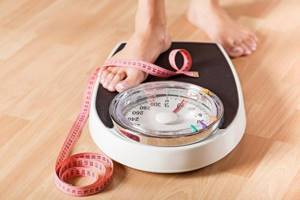
Rules for weighing on human body composition analyzer scales:
1. It is advisable to weigh yourself on analyzer scales barefoot to ensure the best electrical conductivity. 2. Body composition analysis should be carried out at the same time of day. It is best to do this in the evening before dinner and after emptying the bladder. 3. Women are not recommended to conduct analysis on menstruation days. 4. You should not conduct a body composition analysis immediately after intense training, visiting a sauna, or eating a large meal. All these factors affect the resistance of human tissue, which means the results will be inaccurate. 5. The results of body composition analysis are distorted when a person takes alcohol and large amounts of water. 6. The operation of analyzer scales is negatively affected by turned on mobile phones, fans, heaters, and high humidity in the room. 7. The client must step onto the analyzer scales smoothly. The feet should be placed symmetrically to each other to ensure even distribution of weight on the scale platform.
If a nutritionist follows these simple rules, then he will never have problems accurately weighing clients. The same rules will also be useful to clients of nutritionists who will need to monitor the results of weight correction at home.
So, happy weighing and happy reading on the scale!
Shopping for a scale can be an overwhelming experience. Often the desire to weigh yourself every time you go to the bathroom becomes an obsession, but not having a scale at home leaves you in the dark about your weight.
It is believed that it is enough to weigh yourself only a couple of times a month. Such a schedule will not allow you to go too far in gaining extra pounds and will not turn you into a person dependent on the scale. Now let's make sure that you use your home scale correctly and don't let it affect your mood.
Does it happen the other way around?
It also happens that the morning weight indicators suddenly turn out to be slightly higher than the evening ones or show the same result. This is most likely due to incorrect weighing. For example, in the evening the scales stood in one place, and in the morning they were moved to another. In order for an electronic weighing device to provide correct readings, it must be placed on a flat, hard surface and preferably in the same place.
Mechanical scales are less capricious, but they can also give incorrect results if you place them not on the floor, but on a soft rug or carpet. Also, the fact that by morning the weight did not decrease, but increased, is influenced by night snacks or drinking water. Sometimes people do this automatically when they go to the toilet at night, and in the morning they don’t even remember that they ate or drank something at night. If a lot of salty foods were eaten in the evening, then by the morning the person swells, which also does not contribute to a decrease in the readings on the scale.
How to make the right choice?
If you suddenly decide to monitor your figure, purchasing this device is a very important point. It is necessary to approach the matter with all responsibility, because this acquisition is the starting point of your achievements. And I would like them to be accurate.
First of all, you need to decide on the type of scales you want. They are spring and electronic. Each of them has its own advantages. The choice depends on the purpose and available funds.
The cost of spring scales is relatively low, which is an undeniable advantage. They are quite simple to operate, since they are based on a measuring spring. Then it stretches, the dial hand rotates along the existing scale, based on the proportional force of gravity.
The reference point or 0 is set with a special wheel. The division on mechanical scales is 1 kg. Therefore, it will not be possible to measure exact data down to the gram.
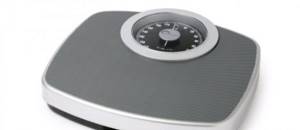
The service life of this type is much longer than that of electronic ones. They do not require special nutrition or periodic recharging. And the maximum weight is more than 160 kg.
But the downside is that the arrow is very sensitive to any movements. Therefore, if you have moved your leg slightly to the left or have not leaned as much, the readings may already differ from the previous ones. And the error in measurement is from 1 to 3 kg, which is quite impressive, isn’t it?
The difference with electronic models is that the weighing result is displayed on a digital display. They have a special voltage sensor in the form of a metal wire that passes current. When a load appears, the sensor reacts with tension and the electrical signal changes. The numbers on the display also change.
Electronic scales are charged using 1.5 or 9V batteries. Absolutely all models contain on and off buttons. The starting point is given automatically, and the weight is shown exactly to the hundredth. The error is no more than 50g.
Modern models of electronic scales allow you not only to measure a person’s weight, but also to save data, like a mini-computer. Such models cost much more than spring scales, and they are harder to get.
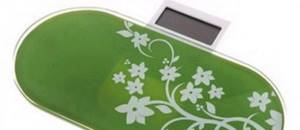
Additional functions:
- • maintaining weight dynamics over recent weeks;
- • calculation of ideal proportions based on the entered data: height, age, gender and physique;
- • recognize a specific person from all those weighed in;
- • give advice on nutrition and training, taking into account the available parameters.
How to use nighttime sleep to lose weight
Nutritionists persistently advise not to eat at night. Some of them call for never eating after six in the evening, others put forward more lenient requirements and extend the time intended for dinner until 20.00. But everyone agrees that evening meals should not be too high in calories for those who want to lose weight.
In order to lose weight while you sleep, you need to eat protein food in the evening, seasoned with a vegetable side dish. Sweets, cereals, bread and even fruits are sources of carbohydrates that the body cannot completely use before sleep at night. Always remember that metabolism slows down significantly in the evening.
The remaining unused glucose is converted by the liver into glycogen, which the body will feed at night. That is, he will have no need to expend already accumulated fat deposits. If we eat protein foods (meat, cottage cheese or eggs) and vegetables in the evening, then, on the one hand, we will give the body proteins that it really needs to build new cellular structures, and vitamins, and on the other hand, we will ensure glycogen deficiency. Thanks to the latter, we will be able to outsmart the body and force it to extract the energy it needs from excess fat.
Now it’s clearer why your weight is less in the morning than in the evening? Just don’t expect quick results just from protein dinners and night sleep. Physical activity is required throughout the day, it is advisable to play sports at least 3 times a week. This will help speed up your metabolism and speed up the fat burning process.

A little theory
Proper loss of extra pounds consists of two components: a calorie deficit and strength training, which will guarantee that the weight will be lost due to accumulated fat and not muscle. If you only deal with nutrition, you are unlikely to have a slim, fit figure. The numbers on the electronic scoreboard will certainly please you, but, alas, there will be no beauty in sagging muscles.
If you start going to the gym, but have not adjusted your diet in any way, you will most likely see an increase - the muscles have become stronger and heavier. Therefore, you don’t even have to think about losing weight. The arrow on the device will automatically move to the right, and your self-esteem will move down.
And this suggests that weight is not the only indicator that you need to focus on when losing weight. Two girls of the same height and with the same number of kilograms can look completely different: it all depends on what, roughly speaking, there is more in the body - muscle or fat. Therefore, set yourself a clear goal - to lose weight or build muscle. Then measure and record the parameters of your figure to evaluate the effectiveness of the process based on them too.
To easily count calories, both lost and gained, use mobile applications. Technological progress does not stand still. Today, developers offer users a variety of nutrition diaries, in which you can also note the time of physical training and the amount of water drunk.
Approach weight loss correctly. Only a competent combination of sports and diet will help achieve results.




